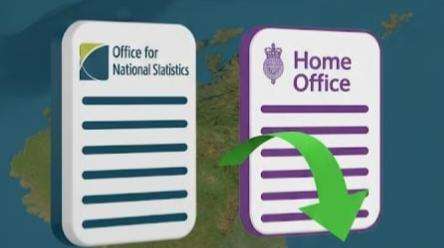In a context often dominated by divisive debates on immigration and crime, official statistics from the Office for National Statistics (ONS) and the Home Office paint a clear picture of successful civic integration: the British Bangladeshi community consistently demonstrates one of the lowest arrest rates per 1,000 people among all major ethnic groups in England and Wales.
Recent analysis of 2022/23 government data shows the Bangladeshi group's arrest rate stood at just 8.7 per 1,000 individuals. This is notably below the national average (11.2) and lower than the rate for the White ethnic group (9.4), positioning the community as a significant benchmark for responsible citizenship.
Academic Achievement and Labour Market Challenges
While headlines frequently focus on conflict, the true story of the British Bangladeshi experience is defined by dramatic upward mobility, particularly in education. This community has seen remarkable gains in school results, with British Bangladeshi students often outperforming the national average in GCSE and A-Level attainment. This focus on education is creating a new, highly skilled professional class.
However, this success is juxtaposed against lingering socio-economic disparities, representing an important area of ongoing concern:
- Economic Inactivity: Despite educational gains, the combined Pakistani and Bangladeshi ethnic group has historically recorded one of the highest rates of economic inactivity in the UK (33% as of 2022), particularly for women (where the gap between male and female inactivity is the largest of any ethnic group). This suggests that high educational attainment does not automatically translate into equal labour market outcomes, indicating persistent barriers related to cultural context, family structure, or occupational mobility.
- Occupational Mobility: Research indicates that people from the Bangladeshi and Pakistani ethnic groups have the highest proportion of downward occupational mobility after graduation, a key challenge in fully capitalising on academic success.
A Powerful Legacy of Contribution
The community's journey—from the Sylheti 'lascars' who settled in the 18th century to the entrepreneurs who transformed the "Indian" restaurant industry into a multi-billion-pound pillar of the UK high street—is a powerful narrative of resilience. Today, British Bangladeshis are highly visible in politics (with MPs like Rushanara Ali and Tulip Siddiq), medicine, and business, further solidifying their place in the national fabric.
The combination of statistically low involvement in the criminal justice system and an ongoing, concerted drive for academic excellence makes the British Bangladeshi community one of the UK’s most significant, yet unsung, success stories of integration and civic contribution.








.svg)


